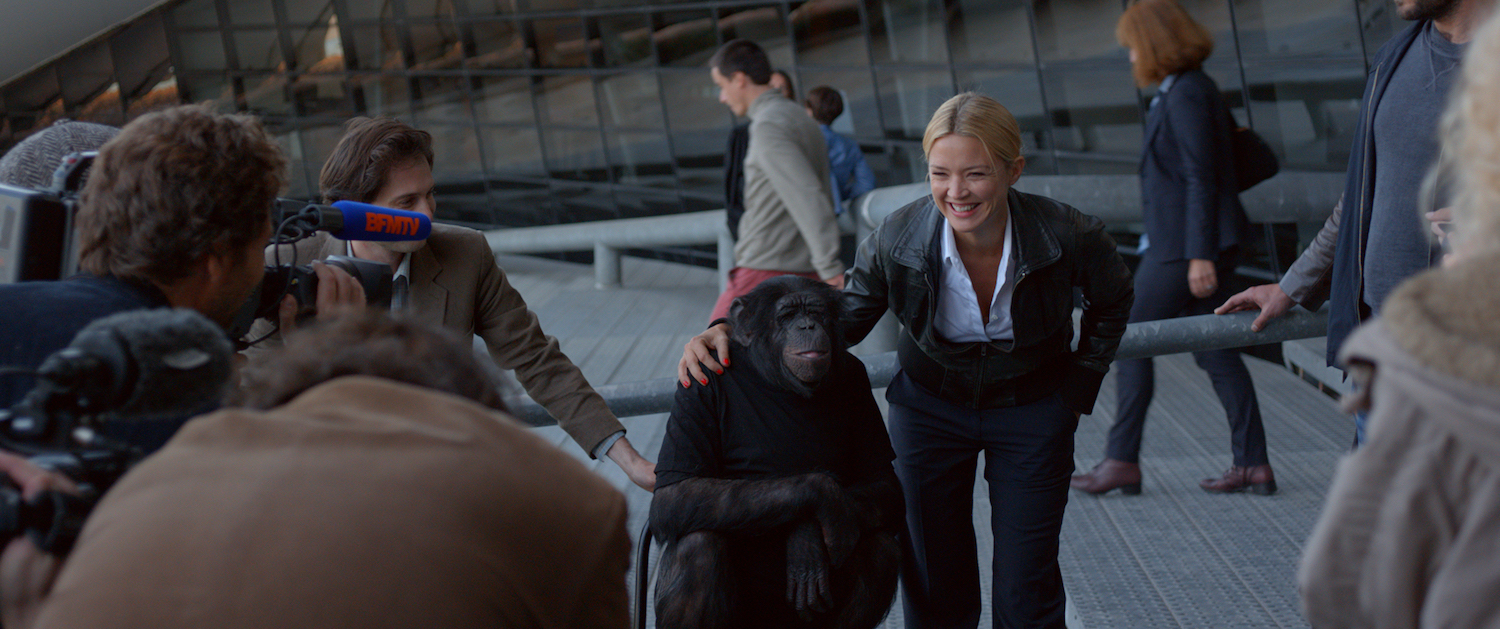Serving as a clear counterpoint to last year’s dour opener, “Les Anarchistes,” this year’s Cannes Critics’ Week is kicking off with Justine Triet’s sophomore fiction feature, “In Bed with Victoria.” Triet’s film embodies the youthful, vibrant filmmaking spirit that one comes to expect from this Cannes Film Festival sidebar. Although what is reductively a romantic comedy may seem to be an odd choice for the opening showcase, “In Bed with Victoria” is buoyed by irresistible performances on the part of the titular lead (Virginie Efira) and inevitable romantic interest Sam (Vincent Lacoste). It is their turns that imbue the film with its energy, even if its generic formula and social milieu is at times too familiar.
Just like last year’s “Courted,” “In Bed with Victoria” is the story of a courtship set against the machinations of the French justice system. The opening moments of the film tell us a great deal about criminal justice lawyer Victoria by introducing the chaotic domestic space that she shares with her two daughters, as well as her relationship with male suitors, as her current assistant/partner leaves her employment because he has been treated as little more than a babysitter. A wedding party that follows brings two men back into her universe: the aforementioned Sam, a former client who is down on his luck and looking to make a change in life, and Vincent (Melvil Poupaud), an old friend she will soon find herself defending against domestic assault charges. There is also the absurd presence of a monkey and Dalmatian at the festivities. Not only do these animals take on an important role in the procedural side of the narrative, they also act as comedic elements that disrupt some of the film’s melodramatic tendencies.

Triet’s most productive contribution to the rom-com tradition is the authentic female voice at the core of the film; Victoria is in a constant struggle to find a work-life balance. She finds herself wearing multiple hats — professional, mother, lover, friend — and often resorts to chemical means in order to cope. Often the film will cross-cut between Victoria occupying different spaces and different roles: at her psychiatrist’s office, consulting with a client, lying in bed with a one-night-stand. This editing motif serves to articulate how interdependent these personas are, as Victoria finds herself discussing her personal life with her clients and her professional life with her lovers. Her failure to separate these selves isn’t indicative of weakness. Rather, it renders Victoria more human and relatable.
The solution to this entanglement is not, however, for Victoria to revert to only one of these aforementioned roles. The fallow period in which she finds herself banned from practicing law and so presumably free to concentrate on her domestic identity, is the moment at which she is least “herself.” Nor is her situation helped by the tendency for the men in her life to offer their own suggestions for sorting out her chaotic life. Whether it is a judicial figure dictating to Victoria how she should interact with a witness that she knows personally or a former client who characterizes her as a sexually promiscuous woman, none of these views satisfy the conflicts in her life. Most obtrusive of all is her ex-husband David (Laurent Poitrenaux), who addresses his own inadequacies by slandering his former partner in a thinly-veiled fiction which inevitably become successful when published as a blog. This serialized alter-ego, “Vicky S.,” emerges as yet another male-centered interpretation of Victoria. And so she finds herself fighting a legal battle on two fronts (suing David and defending Vincent), and it becomes increasingly clear that Victoria will be able to rescue her old friend or her own reputation, but not both. The irony, of course, is that in successfully defending her client, she is also defending her own character and professional aptitude.

Some of the complexity works; a lot does not. A number of the challenges presented to Victoria, which include financial trouble and a developing substance abuse problem, remain on the periphery of the film and are ultimately unresolved. The character’s temporary disbarment is never a convincing obstacle; instead, a “six months later” ellipsis finds Victoria’s law practice resuming where it previously left off. And while we are told that she is a struggling single mother, and this point is driven home by a fellow lawyer, Victoria’s home space — handsomely decorated and with Apple products strewn throughout — belies the precariousness of her finances. These kinds of details, although aesthetically pleasing and identifiably contemporary, remind the audience that for all its pleasures, this is just another white, bourgeois French film.
And as the burgeoning relationship between Victoria and Sam comes into view, “In Bed with Victoria” ultimately fails to find a greater solution to its protagonist’s problems other than needing the right man in her life. They reenact the disagreement that occurred at film’s outset: can a man in her life — now Sam — inhabit the multiple personas of lover, assistant and (begrudgingly) babysitter? If the film’s conclusion does not seem overtly cliché, it only speaks to the warmth of both Efira and Lacoste. We hope that this “happily ever after” is on Victoria’s own terms, and that the character’s admirable — if occasionally self-destructive — behaviors remain in place. It would be a shame to see such a spirited, energetic woman concede to the pressures dominating her socially and professionally. [B-]
Check out the rest of our coverage from the 2016 Cannes Film Festival by clicking here.





